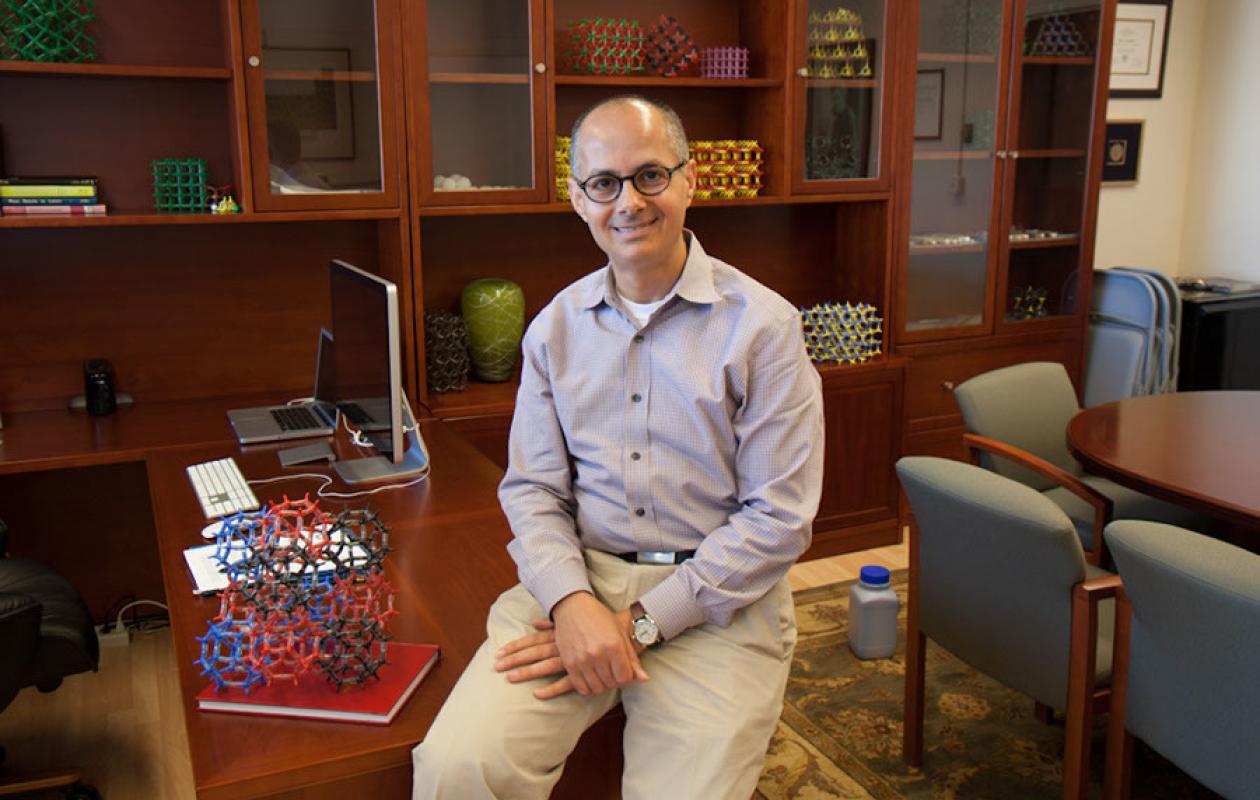
De réfugié à Prix Nobel de chimie, Omar Yaghi rend hommage à la "force" de la science
Born into a Jordanian refugee family with little formal education, Omar M. Yaghi, winner of the 2025 Nobel Prize in Chemistry, has celebrated the "power" of science in reducing inequality.
The chemist was honored, along with the Japanese Susumu Kitagawa and British-born Richard Robson, for the development of new molecular structures capable of trapping gases.
"I grew up in a very modest house, you know, there were about ten of us in a small room, which we shared with the cattle we raised," Mr. Yaghi told the Nobel Foundation.
The home had neither electricity nor running water, and his mother could neither read nor write.
Yaghi grew up in Amman, Jordan, before moving to the United States at the age of 15, on the advice of his stern father.
He was ten years old when he first discovered chemistry. Yaghi sneaked into his school library, which was normally always locked, and picked a book at random from a shelf. Upon opening it, his eyes were drawn to incomprehensible but fascinating images: his first encounter with molecular structures.
"It's a hell of a journey, and science allows you to do it. I mean, science is the greatest force" for equal opportunity, he says.
"Intelligent, talented, and skilled people exist everywhere. We should really focus on unlocking their potential and providing them with opportunities," the laureate insisted.
His research group has successfully extracted water from the desert air of Arizona, where he himself received his first training.
"I started my independent career at Arizona State University, and my dream was to publish at least one article that would receive 100 citations. Today, my students say our group has collected more than 250,000 citations," he said.
"The beauty of chemistry is that if you learn to control matter at the atomic and molecular level, the potential is enormous, and we've opened up a gold mine this way, and the field has grown," Yaghi added.
The 2025 winners' work has led to tens of thousands of different new molecular networks capable of capturing carbon dioxide, storing gases, or even separating PFAS—man-made chemicals that take a long time to break down and can affect health—from water.
Commentaires (5)
C'est un palestinien dont la famille s'est réfugiée en Jordanie.
Simple
C'est aussi cela le journalisme occidental.
Dieudonné le qualifie de Cour des miracles tellement il y a d'indignes menteurs !!
Participer à la Discussion
Règles de la communauté :
💡 Astuce : Utilisez des emojis depuis votre téléphone ou le module emoji ci-dessous. Cliquez sur GIF pour ajouter un GIF animé. Collez un lien X/Twitter, TikTok ou Instagram pour l'afficher automatiquement.